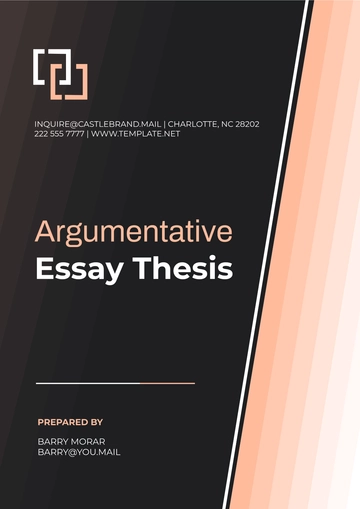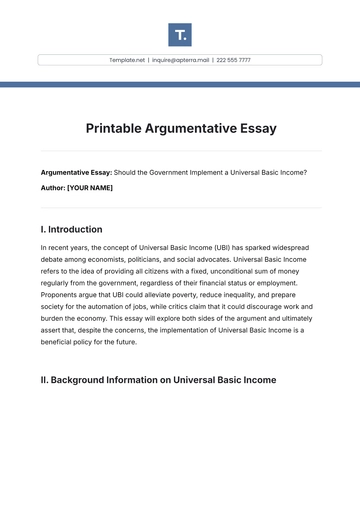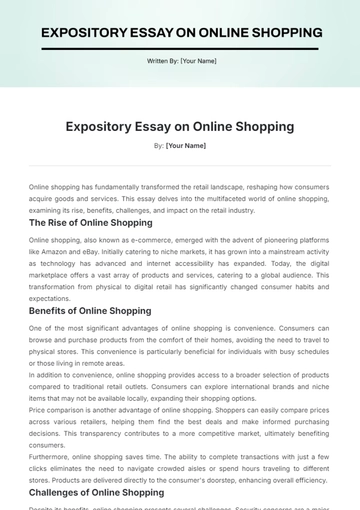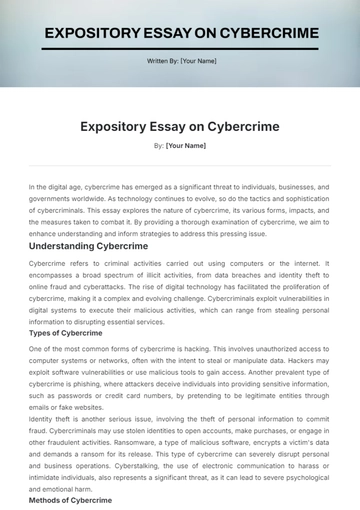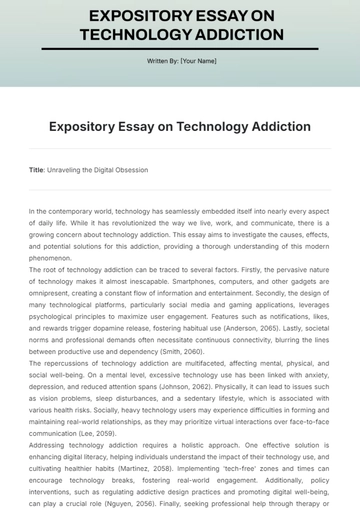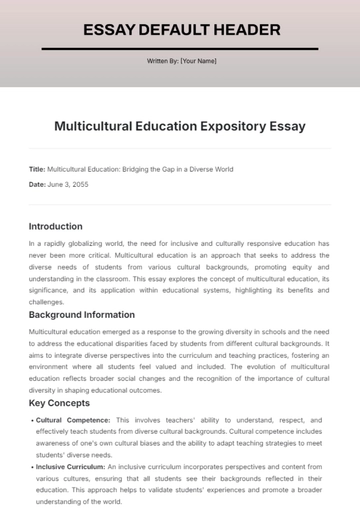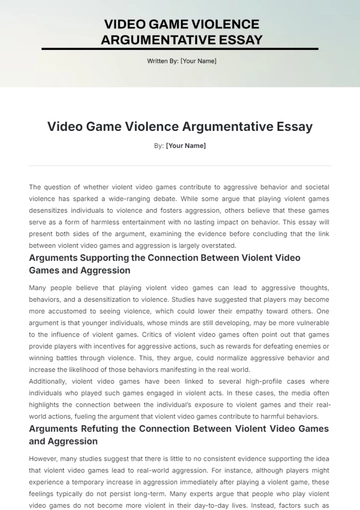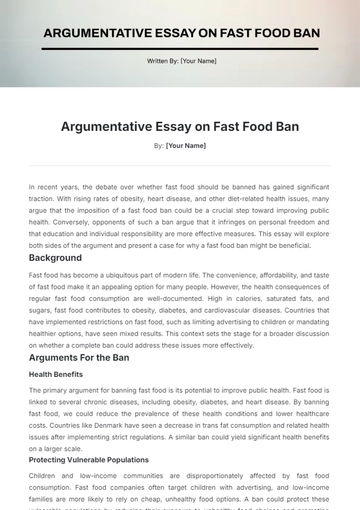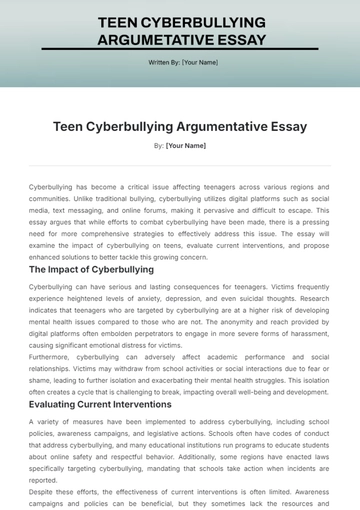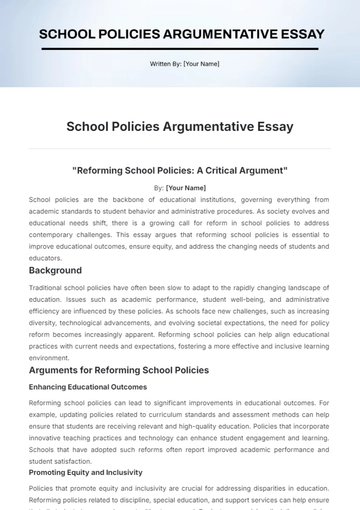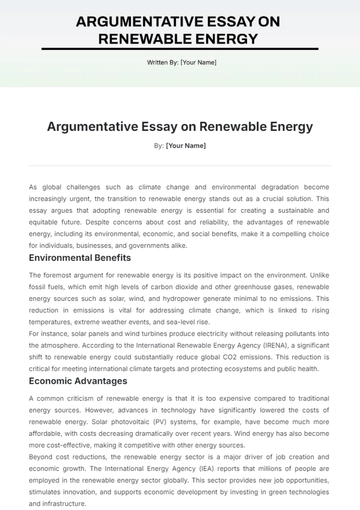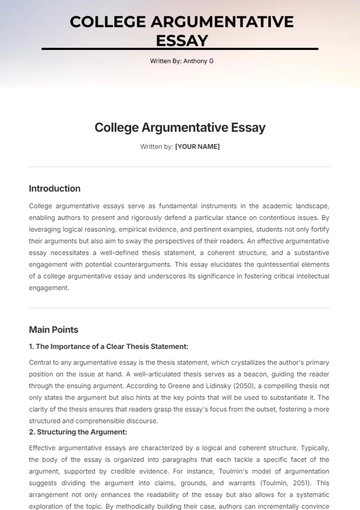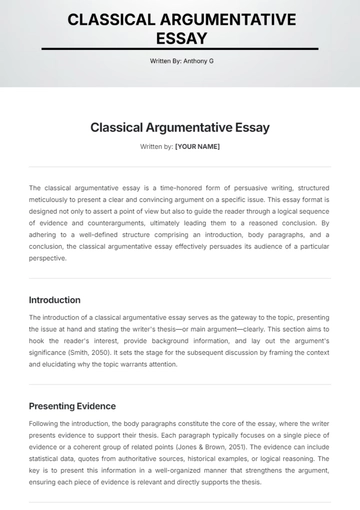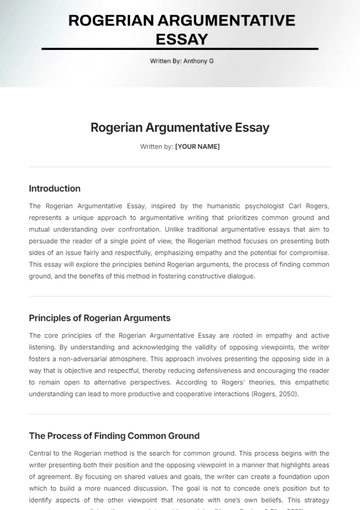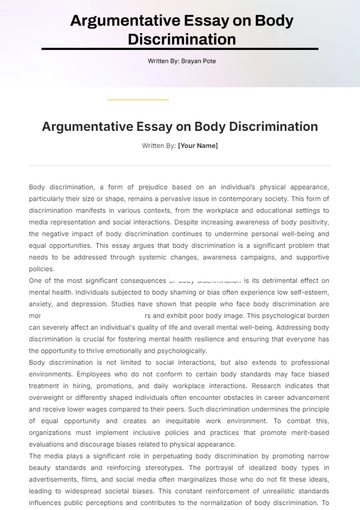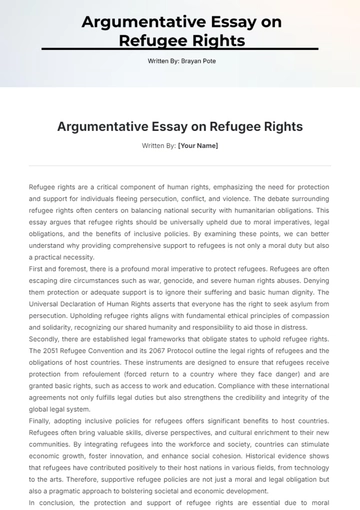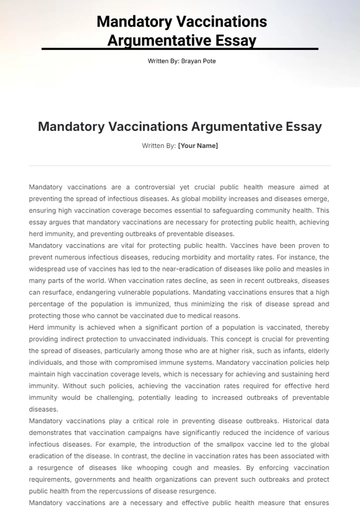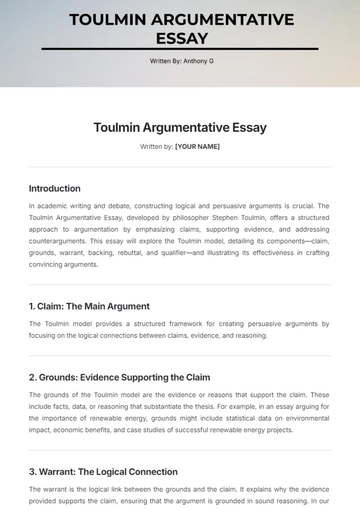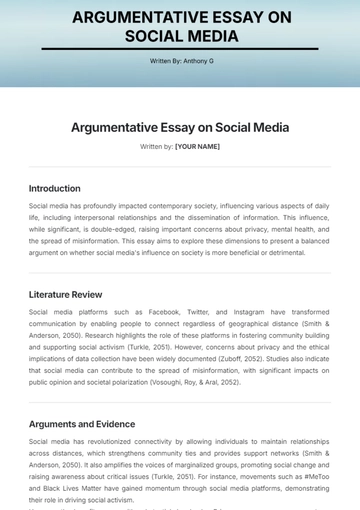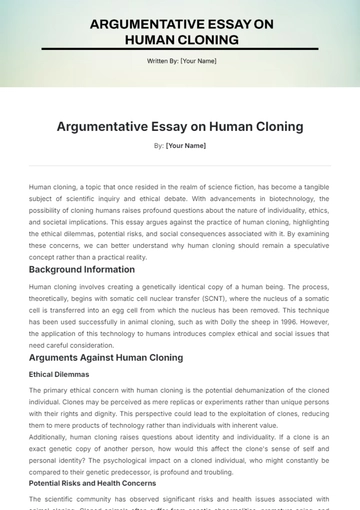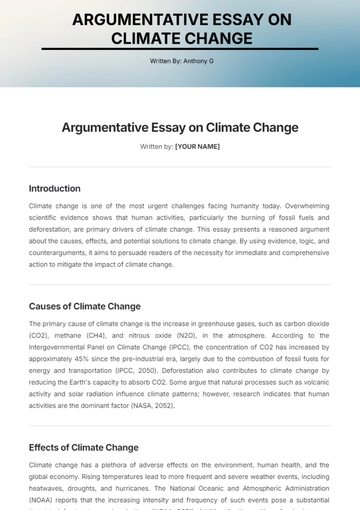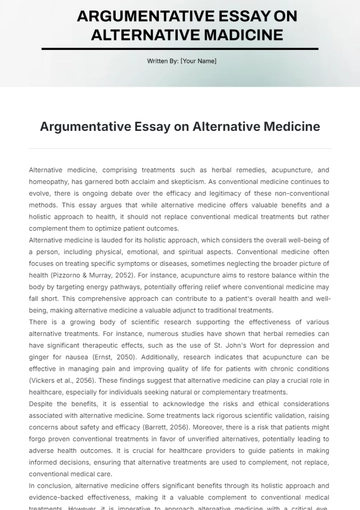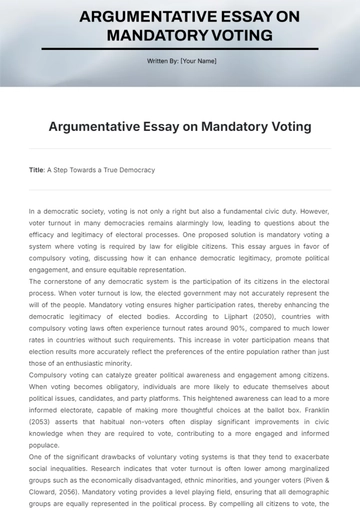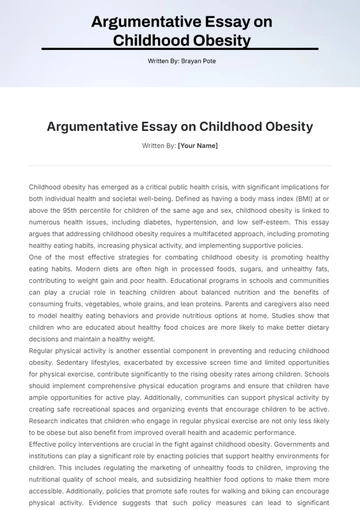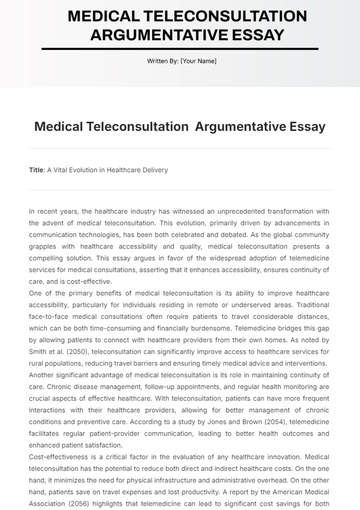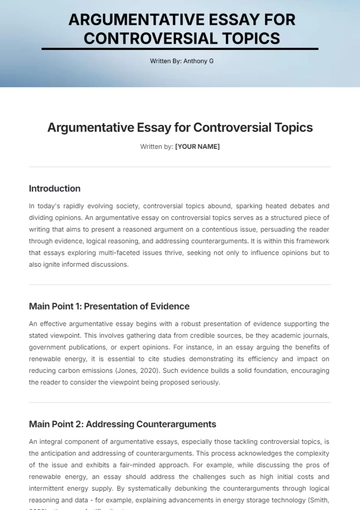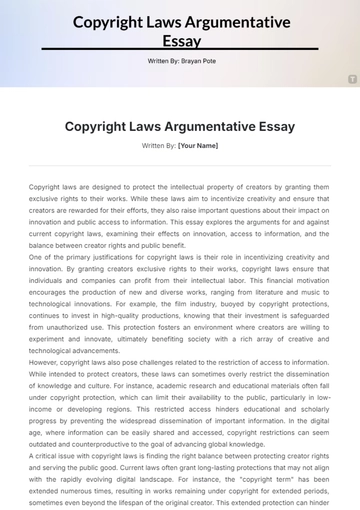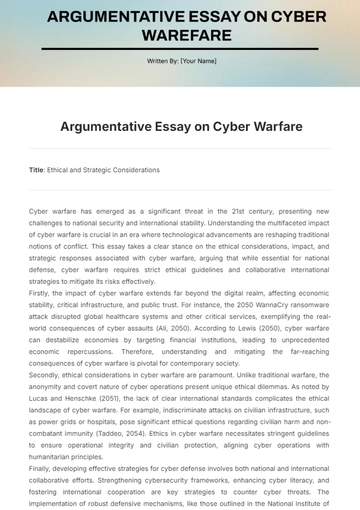Free Argumentative Essay on Alternative Medicine
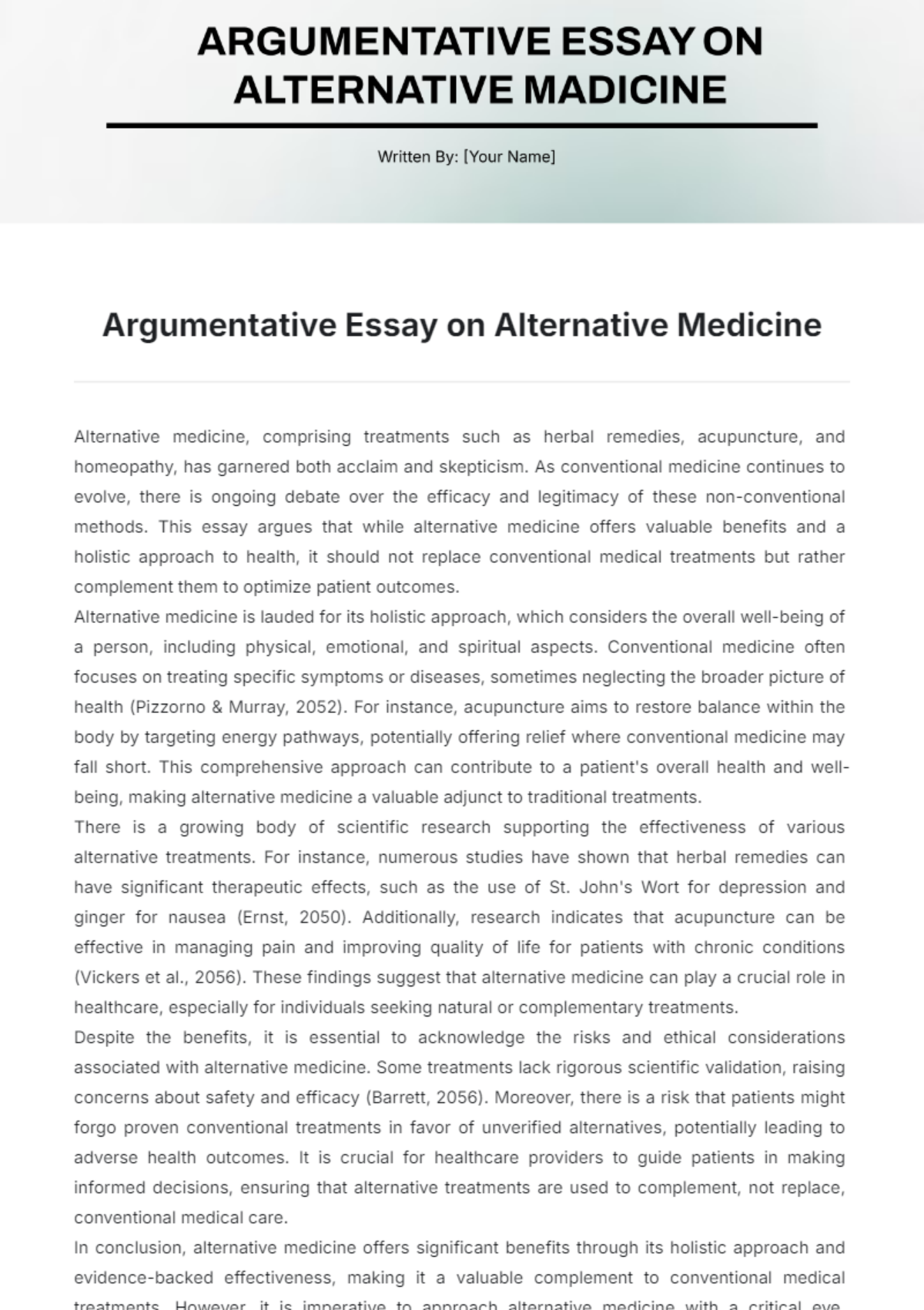
Alternative medicine, comprising treatments such as herbal remedies, acupuncture, and homeopathy, has garnered both acclaim and skepticism. As conventional medicine continues to evolve, there is ongoing debate over the efficacy and legitimacy of these non-conventional methods. This essay argues that while alternative medicine offers valuable benefits and a holistic approach to health, it should not replace conventional medical treatments but rather complement them to optimize patient outcomes.
Alternative medicine is lauded for its holistic approach, which considers the overall well-being of a person, including physical, emotional, and spiritual aspects. Conventional medicine often focuses on treating specific symptoms or diseases, sometimes neglecting the broader picture of health (Pizzorno & Murray, 2052). For instance, acupuncture aims to restore balance within the body by targeting energy pathways, potentially offering relief where conventional medicine may fall short. This comprehensive approach can contribute to a patient's overall health and well-being, making alternative medicine a valuable adjunct to traditional treatments.
There is a growing body of scientific research supporting the effectiveness of various alternative treatments. For instance, numerous studies have shown that herbal remedies can have significant therapeutic effects, such as the use of St. John's Wort for depression and ginger for nausea (Ernst, 2050). Additionally, research indicates that acupuncture can be effective in managing pain and improving quality of life for patients with chronic conditions (Vickers et al., 2056). These findings suggest that alternative medicine can play a crucial role in healthcare, especially for individuals seeking natural or complementary treatments.
Despite the benefits, it is essential to acknowledge the risks and ethical considerations associated with alternative medicine. Some treatments lack rigorous scientific validation, raising concerns about safety and efficacy (Barrett, 2056). Moreover, there is a risk that patients might forgo proven conventional treatments in favor of unverified alternatives, potentially leading to adverse health outcomes. It is crucial for healthcare providers to guide patients in making informed decisions, ensuring that alternative treatments are used to complement, not replace, conventional medical care.
In conclusion, alternative medicine offers significant benefits through its holistic approach and evidence-backed effectiveness, making it a valuable complement to conventional medical treatments. However, it is imperative to approach alternative medicine with a critical eye, considering the potential risks and ensuring that patients receive safe and effective care. By integrating alternative and conventional medicine, healthcare can be optimized, enhancing patient outcomes and overall well-being.
- 100% Customizable, free editor
- Access 1 Million+ Templates, photo’s & graphics
- Download or share as a template
- Click and replace photos, graphics, text, backgrounds
- Resize, crop, AI write & more
- Access advanced editor
Debate the merits of non-traditional health approaches with the Argumentative Essay on Alternative Medicine Template from Template.net. Fully customizable and editable, this template allows you to create strong arguments on alternative treatments. Editable in our AI Editor Tool, it offers flexibility in personalizing your essay on alternative medicine.
